The Tonlé Sap Lake is the largest freshwater lake in Southeast Asia. It was once teeming with over 300 fish species, earning the title of the world’s most productive inland fishery. However, a devastating combination of dam constructions, climate change, and illegal fishing has resulted in dwindling fishing stocks.
Around 70% of households in Tonle Sap Lake are engaged in the fishing industry but with less fish, income is drying up for communities on Cambodia’s biggest lake. As a result, more and more people are turning to alternative income streams including vegetable farming.
Meet Mrs Sokea
For more than 30 years, Mrs Sokea and her family grew vegetables only to feed themselves. A few years ago, she decided to become a vegetable farmer to earn income as she saw that there was a big demand for vegetables in her community, and she was facing challenges in the fishing industry.
However, she faced many challenges. Her crops were often invaded by insects, and she didn’t know how to efficiently protect them due to limited technical skills and knowledge.
“I only applied the traditional farming practices and experienced many challenges in vegetable farming, including a lack of knowledge on pest management, seed selection, and how to use proper fertilisers,” said Mrs Sokea.
Traditional farming methods are often inefficient and unsustainable. Women like Mrs Sokea also have to endure soil degradation, skyrocketing fertiliser costs, and water shortages because of hydropower dams built on the Mekong River upstream from the lake.
Subsequently, adopting alternative and modern farming methods is crucial. VSO volunteers are encouraging community members like Mrs Sokea to use sustainable farming practices and engage in green economy initiatives.
Mrs Sokea has received extensive training from volunteers in various aspects of vegetable farming. This includes seed selection where she learnt how to choose the right seeds for growing crops while taking into account factors such as soil type, climate, and pest resistance.
VSO equipped her on land preparation, organic fertiliser management, and how to deal with pests. VSO also provided her with agricultural products including organic fertiliser and good quality seeds. Organic fertiliser improves soil health and is less expensive than chemical fertiliser.
Recognising her dedication, VSO selected Mrs Sokea as a farmer trainer so that she could empower other farmers through knowledge sharing.
“As a farmer trainer, I can share technical practices with other farmers in my community,” says Mrs Sokea.
Scaling up
Mrs Sokea also discovered more about entrepreneurship and was trained up on how to identify potential startups and existing small and medium businesses in her community. She learnt how each business affects the environment and how to prevent it having a negative impact.
VSO volunteers gave guidance on how to create a business plan and analyse each business’s strengths, weaknesses, opportunities, and threats. She also learnt about marketing strategies and how to manage costs and income. VSO awarded her a small grant.
Mrs SokeaAfter pitching my business plan, VSO granted me $1500 [£1200] to help scale up my vegetable farm. I used it to install a solar energy panel and to buy a water irrigation system. It helps me reduce input costs, especially the electricity. Now I can grow my vegetables in all seasons, so I can have a more stable income,”
A brighter future
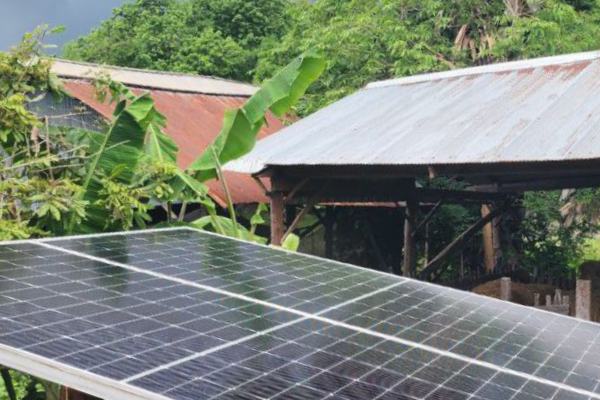
These interventions have profoundly impacted Mrs Sokea life. By adopting these new techniques, she transformed her small-scale subsistence farm into a profitable enterprise.
Her farm now produces a variety of vegetables, including aubergine, chilli, long bean, cucumber, garlic, and lemongrass. These are sold to community members, local markets, and restaurants. Her customers trust the quality of her products, which grow using sustainable and environmentally friendly practices.
Mrs Sokea's daily earnings from vegetable sales range from 20,000-60,000 [£4-12] Khmer Riels, depending on her harvest.
With this increased income, she can support her children's education, cover daily household expenses, and plan for more investments. Additionally, she can provide jobs to other community members by hiring two employees.
As a farmer trainer, Mrs Sokea has also helped increase agricultural productivity in the area, enhancing food security and improving stable economies for many families in East Tonlé Sap.
Mrs. SokeaI commit my best to scaling up my vegetable farming business by applying the technical skills gained from the project. I also continue my passion for supporting other farmers in my village, especially in our vegetable producer group.”
With your support, this project has
Trained 1,058 women on sustainable farming practices, including vegetable, eel, fish, frog and chicken farming
Formed nine agricultural producer groups and provided seeds and solar systems to 1,335 women-led fishing communities.
Trained 129 female business owners and small-holder farmers received in green business development.
Given technical and financial support to 58 local small and medium enterprises.
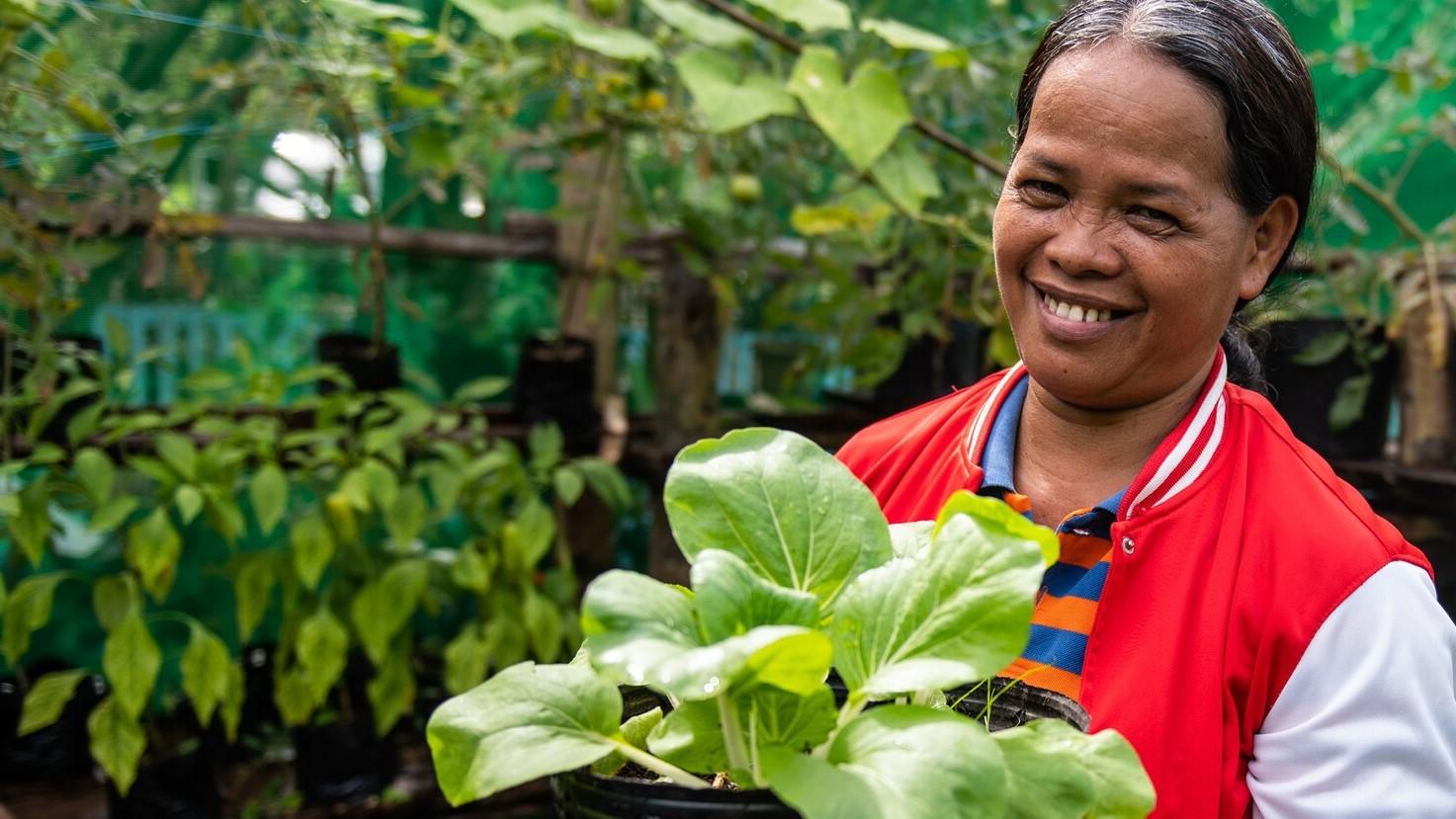
Support us with a donation
Read more
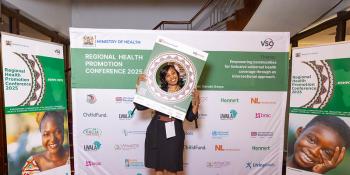
In photos: Our Regional Health Promotion Conference 2025
Check out some of our favourite photos from Regional Health Promotion Conference (RHPC25). This event sought to reimagine Universal Health Coverage through the lens of intersectionality.
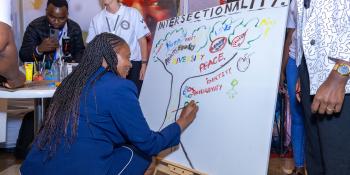
Using intersectionality to create healthy beginnings and hopeful futures
World Health Day brings global attention to the urgent need to end preventable maternal and newborn deaths. Learn more about how our Regional Health Promotion Conference is tackling these issues head on.
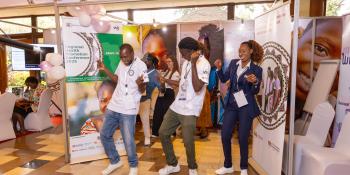
Highlights from the Regional Health Promotion Conference 2025
The Regional Health Promotion Conference 2025 reimagined Universal Health Coverage (UHC) through the lens of intersectionality, by bringing together experts from across East Africa and beyond.
